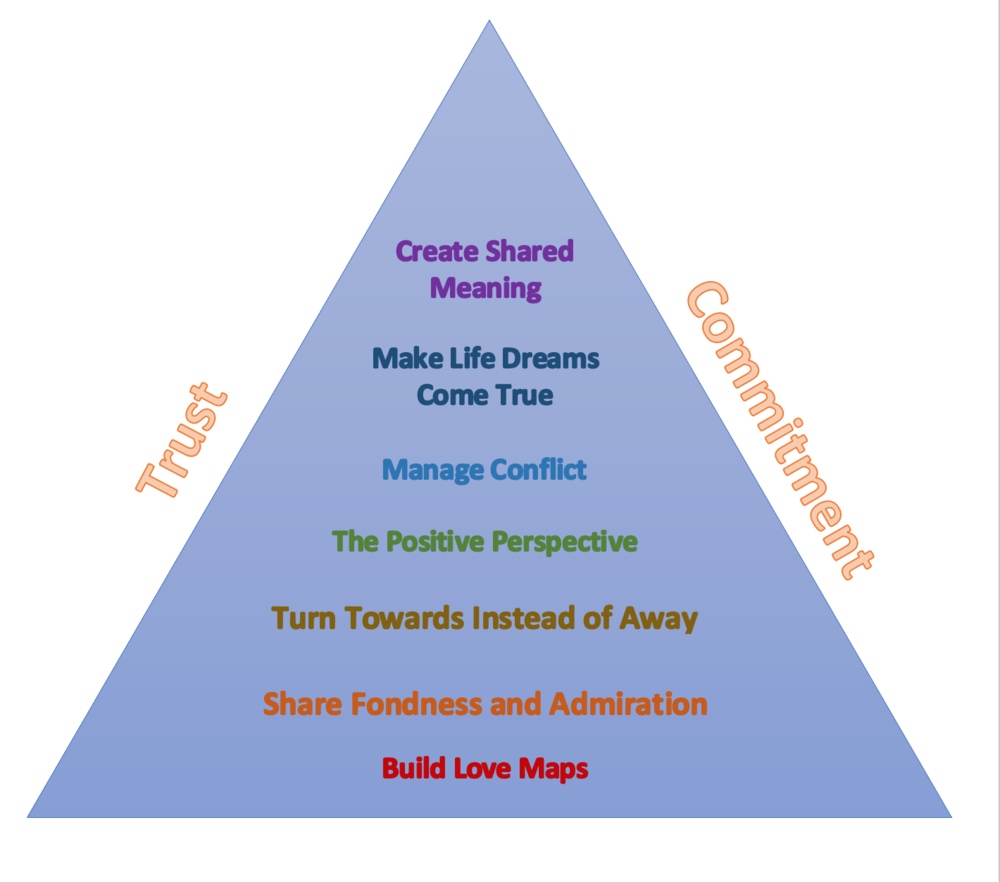Relationships form the foundation of our emotional well-being, yet maintaining a healthy partnership requires ongoing effort and understanding.
When challenges arise in your relationship, seeking professional guidance through couples counselling can provide the tools and insights needed to rebuild connection, improve communication, and create lasting positive change.
In Singapore, couples counselling has become increasingly recognized as an effective intervention for addressing relationship difficulties before they become insurmountable.
Whether you’re dealing with communication breakdowns, trust issues, or simply want to strengthen your bond, professional relationship therapy offers a structured pathway toward healing and growth.
Related article: Divorce Counselling in Singapore
Understanding When Couples Counselling Is Needed

Many couples wonder whether their relationship difficulties warrant professional intervention.
Recognizing the warning signs early can significantly improve the likelihood of successful relationship repair and growth.
Early Warning Signs That Indicate Professional Help May Be Beneficial
Relationship distress often manifests in patterns that, when identified early, can be addressed more effectively. If you recognize several of these indicators in your relationship, it may be time to consider professional support:
Communication Breakdown Indicators:
- Conversations frequently escalate into arguments without resolution
- You feel unheard or misunderstood despite attempts to communicate
- Discussions about important topics are consistently avoided
- Sarcasm, criticism, or contempt has become common in your interactions
You might like: Which Psychologist in Singapore Should You Consider? (Sort by Reviews)
Emotional Disconnection Signs:
- Physical and emotional intimacy has significantly decreased
- You feel more like roommates than romantic partners
- There’s a persistent sense of loneliness even when together
- Shared activities and interests have diminished substantially
Trust and Security Issues:
- Suspicion or doubt about your partner’s actions or intentions
- Previous betrayals or breaches of trust remain unresolved
- Fear of vulnerability prevents open sharing of thoughts and feelings
- Questioning whether your partner genuinely cares about your well-being
Persistent Conflict Patterns:
- The same arguments occur repeatedly without meaningful resolution
- Minor disagreements quickly escalate into major conflicts
- Resentment builds over unaddressed issues
- Either partner frequently considers what life would be like without the other
Read more: Psychotherapy in Singapore: Types, Benefits, and How to Get Started
The Science Behind Effective Couples Therapy
Modern couples counselling draws from evidence-based therapeutic approaches that have been extensively researched and proven effective.
Understanding these methodologies can help couples make informed decisions about their treatment options.
The Gottman Method: A Research-Based Approach
The Gottman Method represents one of the most thoroughly researched approaches to couples therapy, developed through decades of observational studies involving thousands of couples.
This methodology focuses on building relationship skills while addressing destructive patterns that predict relationship failure.
Related article: Pornography Addiction Treatment in Singapore
Core Principles of Gottman Method Therapy:

The approach centers on nine fundamental principles that healthy couples consistently demonstrate.
These include building love maps (deep knowledge of your partner’s inner world), nurturing fondness and admiration, turning toward each other during everyday moments, accepting influence from each other, solving solvable problems, overcoming gridlock, creating shared meaning, managing conflict, and building trust and commitment.
The Four Horsemen of Relationship Destruction:
Research has identified four communication patterns that are particularly damaging to relationships: criticism (attacking character rather than addressing specific behaviors), contempt (expressions of superiority or disgust), defensiveness (playing the victim or counter-attacking), and stonewalling (emotional withdrawal or shutting down).
Effective couples therapy specifically targets these destructive patterns while building healthier alternatives.
Read more: Complete Guide to Anger Management in Singapore
Emotionally Focused Therapy (EFT) for Couples
Emotionally Focused Therapy represents another highly effective approach that focuses on attachment bonds between partners.
This method helps couples identify underlying emotional needs and fears that drive negative interaction cycles.
EFT operates on the understanding that many relationship conflicts stem from attachment insecurities and unmet emotional needs.
By helping partners recognize and express these deeper emotions safely, couples can break free from destructive patterns and create more secure emotional bonds.
The therapy process typically involves identifying negative interaction cycles, accessing underlying emotions and needs, restructuring interactions based on newfound emotional awareness, and consolidating positive changes to create lasting relationship transformation.
You might like: Gaming Addiction Treatment in Singapore
Specialized Approaches for Complex Relationship Challenges
Different relationship challenges require specialized therapeutic interventions. Understanding these targeted approaches can help couples seek the most appropriate support for their specific situation.
Infidelity Recovery and Trust Rebuilding
Discovering infidelity often feels like the end of a relationship, but with proper professional guidance, many couples emerge from this crisis with stronger bonds than before.
Effective infidelity counselling addresses both the immediate trauma and the underlying relationship dynamics that may have contributed to the breach of trust.
The Recovery Process:
Recovery from infidelity typically involves several distinct phases. The initial crisis phase focuses on establishing safety, managing intense emotions, and creating structure for healing.
The exploration phase involves understanding the circumstances that led to the infidelity and examining relationship patterns.
The rebuilding phase concentrates on developing new relationship skills, rebuilding trust gradually, and creating safeguards against future betrayals.
Key Elements of Successful Infidelity Recovery:
Successful recovery requires complete transparency from the partner who strayed, willingness to be accountable for their actions, and commitment to rebuilding trust through consistent behavior over time. The betrayed partner must be willing to process their emotions fully while gradually opening themselves to vulnerability again. Both partners need to examine relationship dynamics honestly and commit to creating new patterns of interaction.
Related article: Sex Addiction Treatment in Singapore
Supporting Ambivalent Couples
When one or both partners feel uncertain about the future of their relationship, specialized approaches can help clarify feelings and make informed decisions about moving forward together or apart.
Ambivalence often stems from unresolved relationship patterns, unmet needs, or fear of change.
Professional counselling provides a safe space to explore these feelings without pressure to make immediate decisions.
The therapeutic process helps partners understand the sources of their uncertainty while exploring possibilities for positive change.
Whether couples ultimately decide to recommit to their relationship or separate amicably, therapy ensures that decisions are made thoughtfully and with mutual respect.
The Therapeutic Process: What to Expect
Understanding the counselling process can help reduce anxiety and set realistic expectations for your therapeutic journey.
Initial Assessment and Goal Setting
The therapeutic relationship begins with a comprehensive assessment that examines relationship history, current challenges, individual backgrounds, and couples’ goals for therapy.
This assessment phase typically involves both joint sessions and individual meetings to gather complete information about relationship dynamics.
During this phase, therapists may utilize standardized assessment tools to identify specific areas of strength and concern. The Gottman Relationship Checkup, for example, provides detailed analysis of relationship functioning across multiple dimensions, offering specific recommendations for therapeutic intervention.
Ongoing Therapy Sessions
Regular therapy sessions provide structured opportunities to practice new skills, process difficult emotions, and work through specific challenges in a supportive environment.
Sessions typically focus on immediate concerns while building long-term relationship skills.
Session Structure and Focus Areas:
Each session builds upon previous work while addressing current relationship challenges.
Common focus areas include improving communication skills, managing conflict constructively, rebuilding emotional intimacy, addressing specific concerns or traumas, and developing shared goals and vision for the relationship.
Therapists often assign homework or exercises between sessions to reinforce learning and provide opportunities to practice new skills in real-world situations.
Progress Monitoring and Adjustment
Effective therapy involves regular assessment of progress and adjustment of therapeutic approaches based on couples’ responses and changing needs.
This flexibility ensures that therapy remains relevant and effective throughout the healing process.
Online Couples Counselling: Accessibility and Effectiveness
Modern technology has made couples counselling more accessible than ever before. Online therapy options provide flexibility for busy schedules while maintaining therapeutic effectiveness.
Benefits of Online Couples Therapy

Online counselling eliminates geographical barriers, reduces scheduling conflicts, provides greater privacy for sensitive discussions, and often feels less intimidating for couples new to therapy. Research demonstrates that online couples therapy can be as effective as in-person sessions when proper technology and therapeutic protocols are utilized.
Requirements for Successful Online Therapy
Effective online couples counselling requires reliable internet connection, private space for sessions, computer or device with video and audio capabilities, and commitment from both partners to engage fully in the process.
Many couples find that online sessions allow for more comfortable emotional expression while maintaining therapeutic boundaries.
Common Relationship Challenges Addressed in Therapy
Couples seek professional support for various challenges, and understanding these common issues can help normalize the decision to pursue counselling.
Communication Difficulties
Poor communication forms the foundation of many relationship problems. Therapy addresses both verbal and non-verbal communication patterns while building skills for expressing needs, listening actively, and resolving conflicts constructively.
Common communication issues include making assumptions about partner’s intentions, difficulty expressing emotions clearly, tendency to blame rather than take responsibility, and inability to listen without becoming defensive or argumentative.
Financial Disagreements
Money-related conflicts often reflect deeper differences in values, priorities, and relationship roles.
Effective therapy helps couples identify underlying issues while developing practical strategies for financial decision-making and management.
Work-Life Balance Challenges
Modern life demands often strain relationship time and energy. Therapy helps couples prioritize their relationship while managing competing demands from work, family, and personal obligations.
Intimacy and Connection Issues
Emotional and physical intimacy requires ongoing attention and nurturing. When connection deteriorates, therapy can help couples rediscover their bond while addressing barriers to intimacy.
Treatment Effectiveness and Success Rates
Research consistently demonstrates the effectiveness of professional couples counselling when both partners commit to the therapeutic process.
| Outcome Measure | Success Rate | Research Source |
|---|---|---|
| Relationship Satisfaction Improvement | 70% of couples | Journal of Marital and Family Therapy |
| Couples Remaining Together After Therapy | 65-80% | Multiple longitudinal studies |
| Significant Improvement in Communication | 85% | Gottman Institute Research |
| Reduction in Destructive Conflict Patterns | 75% | EFT Outcome Studies |
Factors That Enhance Therapeutic Success
Several factors significantly improve the likelihood of positive outcomes in couples therapy. Early intervention before problems become deeply entrenched increases success rates substantially.
Both partners’ willingness to examine their own contributions to relationship problems rather than focusing solely on their partner’s faults creates better outcomes.
Commitment to practicing new skills between sessions and implementing therapeutic recommendations in daily life enhances progress. Regular attendance and full engagement during sessions also correlate with better results.
Choosing the Right Therapist and Approach
Selecting an appropriate therapist represents a crucial decision that can significantly impact therapeutic outcomes.
Qualifications and Specializations
Look for licensed mental health professionals with specific training in couples therapy.
Many therapists specialize in particular approaches such as Gottman Method, EFT, or other evidence-based interventions.
Experience with your specific challenges (such as infidelity, communication issues, or cultural considerations) can enhance therapeutic effectiveness.
Don’t hesitate to ask potential therapists about their training, experience, and approach to treatment.
Cultural Considerations in Singapore
Singapore’s diverse cultural landscape requires therapists who understand various cultural backgrounds and their impact on relationship dynamics.
Consider whether cultural factors play a significant role in your relationship challenges and seek therapists with relevant cultural competency.
Practical Considerations for Couples Counselling
Understanding practical aspects of therapy can help couples prepare for their therapeutic journey and make informed decisions about treatment.
Session Duration and Frequency
Initial assessment sessions typically last 90 minutes to allow comprehensive evaluation of relationship dynamics.
Subsequent sessions usually run 50 minutes and occur weekly or bi-weekly depending on couples’ needs and availability.
Most couples benefit from consistent weekly sessions during the initial phases of therapy, with session frequency potentially decreasing as progress is made and skills are solidified.
Investment in Your Relationship
While therapy represents a financial investment, consider the cost in relation to the value of your relationship and the potential consequences of unresolved problems.
Many couples find that the skills learned in therapy continue benefiting their relationship long after formal therapy concludes.
Early intervention typically requires fewer sessions than waiting until problems become severe, making prompt attention to relationship concerns both emotionally and financially advantageous.
Building Long-Term Relationship Success
Effective couples counselling extends beyond problem-solving to build lasting relationship skills and resilience.
Developing Relationship Maintenance Skills
Healthy relationships require ongoing attention and nurturing. Therapy teaches couples how to maintain their connection through regular check-ins, appreciation practices, shared goal-setting, and proactive conflict resolution.
Learning to recognize early warning signs of relationship distress allows couples to address issues before they escalate into major problems.
Creating Relationship Rituals and Traditions
Successful couples develop meaningful rituals that strengthen their bond and create positive shared experiences. These might include weekly date nights, daily appreciation practices, annual relationship goal-setting sessions, or special ways of handling difficult times together.
Frequently Asked Questions
How do I know if couples counselling is right for my relationship?
If you’re experiencing persistent communication difficulties, recurring conflicts without resolution, decreased emotional or physical intimacy, or questioning your relationship’s future, couples counselling can provide valuable support.
Even couples without major problems can benefit from relationship enhancement and skill-building through therapy.
What happens if my partner doesn’t want to attend couples counselling?
While couples therapy works best when both partners participate willingly, individual therapy can still provide valuable insights and tools for improving relationship dynamics.
Sometimes one partner’s positive changes can motivate the other to join the process.
Many therapists offer individual sessions to help explore relationship concerns and develop strategies for encouraging partner participation.
How long does couples counselling typically take?
The duration of couples therapy varies significantly based on the complexity of issues, couples’ commitment to change, and specific therapeutic goals.
Some couples see improvement within a few sessions, while others may benefit from longer-term support.
Most couples engage in therapy for 12-20 sessions, though this can vary considerably based on individual circumstances.
Can couples counselling save a relationship that seems beyond repair?
Many relationships that seem hopeless can improve significantly with proper therapeutic intervention and commitment from both partners.
However, therapy cannot force someone to remain in a relationship against their will or overcome fundamental incompatibilities.
The goal is to help couples make informed decisions about their future while developing healthier patterns regardless of whether they stay together.
Is online couples counselling as effective as in-person therapy?
Research indicates that online couples counselling can be equally effective as in-person therapy when proper technology and therapeutic protocols are used.
Online sessions offer increased accessibility and convenience while maintaining therapeutic effectiveness.
The key is ensuring both partners have a private, comfortable space and reliable technology for sessions.
What should I expect during the first couples counselling session?
The initial session typically involves comprehensive assessment of your relationship history, current challenges, individual backgrounds, and goals for therapy.
Your therapist will explain their approach, discuss confidentiality, and begin identifying patterns that may be contributing to relationship difficulties.
This session sets the foundation for your therapeutic work together.
How much does couples counselling cost in Singapore?
Costs vary depending on the therapist’s qualifications, location, and session format. Many practices offer different pricing structures, and some insurance plans may provide coverage for couples therapy.
Consider the investment in relation to the value of your relationship and potential long-term benefits of improved relationship skills.
Can couples counselling help with specific issues like infidelity or addiction?
Yes, specialized approaches exist for addressing specific challenges such as infidelity, addiction, cultural differences, and other complex issues.
Many therapists have particular expertise in these areas and can provide targeted interventions designed for your specific situation.
What if we’ve tried couples counselling before without success?
Previous unsuccessful therapy experiences don’t predict future outcomes. Different therapeutic approaches, better timing, increased readiness for change, or simply finding the right therapist can make a significant difference.
Many couples benefit from trying therapy again with a different approach or therapist.
How do we choose between different types of couples therapy?
Different therapeutic approaches work better for different couples and situations. Discuss your specific concerns and goals with potential therapists to understand which approach might be most beneficial.
Many effective therapists integrate multiple approaches based on couples’ needs rather than adhering strictly to one methodology.
Will everything we discuss in couples counselling remain confidential?
Licensed therapists are bound by strict confidentiality requirements, with limited exceptions for safety concerns.
Your therapist should explain confidentiality policies clearly during your first session.
Most couples find that the confidential nature of therapy allows for more open and honest communication.
Can couples counselling help prevent divorce?
While therapy cannot guarantee that couples will stay together, it significantly improves relationship satisfaction and stability for many couples.
Even when couples ultimately decide to separate, therapy can help them do so more amicably and with better co-parenting relationships if children are involved.

